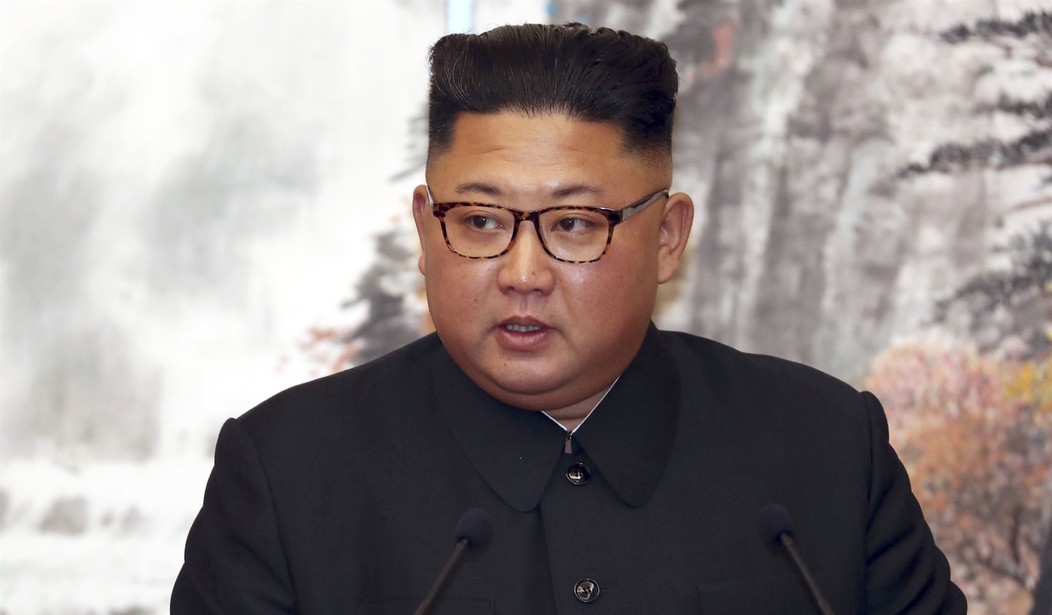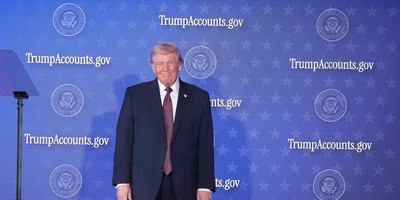This week, South Korean President Moon Jae-in offered North Korean dictator Kim Jong Un another encouraging word. Moon said the crippling economic and political sanctions imposed on North Korea will begin to ease "when and if we decide the North's denuclearization process has at least reached a point of no return..."
Call that a word carrot. North Korea didn't receive a bankable financial instrument or written agreement, just a verbal incentive to continue the denuclearization process Kim and U.S. President Donald Trump began in Singapore last June.
South Korean media now refer to that meeting as the "unprecedented U.S.-North Korea summit." It certainly was. Trump assured Kim that he and his nation had a safe and wealthy future backed by American and South Korean security guarantees -- as long as Kim followed through on his promise to completely, verifiably and irreversibly denuclearize, or CVID.
CVID is an au courant State Department and Pentagon acronym for complete, verifiable, irreversible denuclearization. CVID is an explicit requirement, not a carrot. It serves as a shorthand description for what North Korea must do to secure peace on the Korean Peninsula and then prosper like its neighbors.
China, Japan and South Korea have the second, third and 12th (respectively) most productive economies on the planet. In 2017, South Korea's GDP was more than $2 trillion. North Korean GDP data are unreliable. Its estimated 2013 GDP ranged from $28 billion to as low as $14 billion. The dictatorship built nuclear weapons and ICBMs, but its people subsist in squalid poverty.
In Singapore, Trump told Kim North Korea didn't have to stay poor. Trump's word carrots followed a year of word sticks and military "show of force" maneuvers threatening Little Rocket Man and his regime with destruction. The Trump administration said it wouldn't let the dictatorship threaten Guam, Honolulu, Seattle and America's allies with nuclear attack and devastation.
Recommended
Many commentators worried that, after the Singapore summit, North Korea would evade the coercive economic and political sanctions penalizing its weapons programs and belligerent behavior. South Korea was the likely weak link; diplomatic coaxing would slide into economic and political rewards while North Korea's nuclear program remained functional. Pyongyang's nuclear blackmail ploy to extort cash would once again work.
Moon's suggestion that sanctions could be eased might strike some ears as a hint of retreat. However, note that he said North Korean denuclearization must reach a point of irreversibility -- the I in CVID.
American and South Korean interests do not align perfectly. Allies always have differences. Seoul wants a formal end to the Korean War by the end of this year. Washington says no, denuclearization must occur first.
But four months after Singapore, North Korea has not conducted nuclear or missile tests and the sanctions continue. This week, South Korea's Yonhap news agency reported Secretary of Defense Jim Mattis said the sanctions remained tight and in some cases enforcement has improved. "The sanctions patrols (naval patrols) to enforce the unanimous U.N. Security Council resolution sanctions, specifically on ship-to-ship transfer, are being maintained," Mattis said. "On a steady basis we have a number of countries helping on that. I think it's up to five countries right now..."
As for denuclearization, Mattis said: "There is progress. We know it's going to be difficult as they deal with this difficult issue. No surprise there." He also dismissed the criticism that Trump's suspension of major U.S. and South Korean joint military exercises was a significant concession to Pyongyang. U.S.-South Korean military collaboration continues, and both allies are training their troops.
Though Mattis didn't say it, the suspension is a decision Washington and Seoul could quickly reverse.
Verification -- the V in CVID-- is a major difficulty. Enforcing any peacefully negotiated agreement to de-nuclearize North Korea will require the most thorough and sustained verification regimen in history. It takes rigorous verification to determine irreversibility.

























Join the conversation as a VIP Member